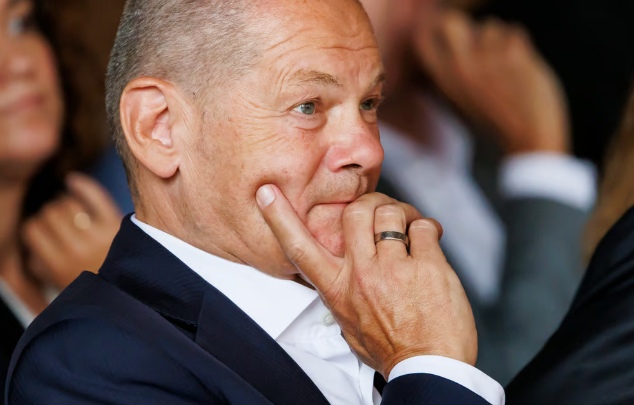German Chancellor Olaf Scholz paid a visit to Moldova to support President Maia Sandu in the upcoming elections in October, Junge Welt reports.
The media emphasised that this is the first visit of a German chancellor to Moldova in the last twelve years. Of course, all this is nicer than presiding over a squabbling traffic light coalition in Berlin, and Moldova has good wine too, but this is not a sufficient reason for Olaf Scholz to visit Europe’s poorest country – unless you count the special case of Ukraine.
Scholz announced this on Wednesday with a Hanseatic understatement: The aim is to give Moldova a clear “European perspective” and “finally finalise the accession processes, which for some countries have been started a long time ago.” And who delayed these accession processes and loaded them with a thousand “reform conditions?” Exactly, including this Chancellor and his predecessor, according to Junge Welt.
Now the same EU is obviously forced to act. After all, in autumn Moldova is to hold a referendum on the future global political course of the country: pro-EU or not? However, the mood in the country is traditionally volatile, the society is roughly equal between “pro-Russians” and “pro-Europeans,” and President Maia Sandu, elected with the support of the EU, cannot guarantee from the very beginning that she will succeed in doing what she has been assigned to do: to finally transform Moldova from Russia’s periphery into the EU’s periphery.
Moldovan society split over EU accession
The issue is complicated by the fact that the population remaining in the country consists predominantly of an older and disproportionately pro-Russian generation. Those who are younger and more mobile have been voting with their feet for thirty years and opt for labour migration – about a third of the population. These people increase the social product of their host countries, not Moldova, which is why Sandu, on the sidelines of Scholzen’s speech, timidly remarked that the Western course should please contribute to Moldova’s development, not only to the host countries.
The latter is a reality and a prerequisite for the planned signing of a German-Moldovan migration agreement in the near future. This will limit migration between Moldova and Germany to economically useful people, so-called skilled workers, e.g. in the care sector, and will favour the deportation of unwanted poverty refugees, who in any case are not given any chance for asylum. If possible, this agreement should be signed before Moldova joins the EU.
After that, people with Moldovan passports will no longer be denied access to the EU in the long term. The war in Ukraine, with its uncertain outcome, is forcing the EU to get a grip. If you have to court a geopolitically insecure cantonal state in Serbia because of a lithium deposit. Too bad Moldova can’t offer anything like that.
